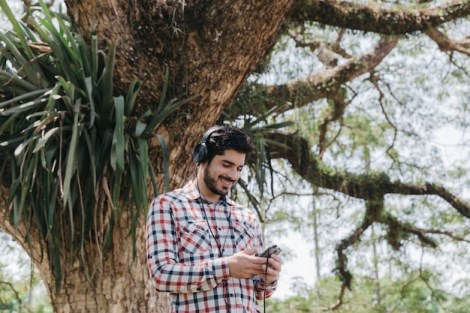Exploring the Fascinating Wonders of the Amazon Rainforest

The Amazon rainforest covers an area of about 6.7 million square kilometers, making it the largest tropical rainforest in the world.
The rainforest is often referred to as the lungs of the Earth as it produces 20% of the world’s oxygen.
It is estimated that the Amazon rainforest is home to over 400 billion individual trees belonging to 16,000 different species.
The forest is so dense that the sunlight only reaches the ground in less than 1% of the area.
About 20% of the world’s freshwater flows through the Amazon River, which runs through the rainforest.
The Amazon rainforest is home to around 30 million people, including numerous indigenous tribes.
The region is incredibly diverse, with over 2.5 million insect species found in the rainforest.
The forest is home to some of the most unique and endangered animal species such as the Amazonian manatee, harpy eagle, and pink river dolphin.
The Amazon rainforest has been inhabited for thousands of years and archaeological sites dating back to 13,000 years ago have been discovered.
The Amazon rainforest is so large that it spans across nine South American countries, including Brazil, Peru, and Colombia.
The canopy of the rainforest is a complex ecosystem of plants and animals, with an estimated 400 billion individual leaves.
The majority of the Amazon’s plant and animal species are still undiscovered and unnamed.
The rainforest is incredibly resilient and can withstand fires, floods, and droughts due to its complex ecosystem.
Exploring the Fascinating Wonders of the Amazon Rainforest part 2
The forest plays a crucial role in regulating the Earth’s climate by absorbing carbon dioxide and acting as a carbon sink.
In a single year, the Amazon rainforest can receive up to 9 feet (2.7 meters) of rainfall.
The Amazon rainforest is a treasure trove of medicinal plants, with 25% of Western pharmaceuticals derived from rainforest ingredients.
The forest floor of the Amazon rainforest is teeming with life, including numerous species of amphibians, reptiles, and small mammals.
The Amazon River basin is believed to be the ancestral home of cocoa, the main ingredient in chocolate.
The Amazon rainforest is home to one-third of all known bird species, with over 1,500 different species recorded.
The forest’s diverse ecosystem provides a habitat for more than 2.5 million species of insects.
The Amazon rainforest is home to the largest freshwater turtle species in the world, the Amazon River turtle.
The world’s largest rodent, the capybara, can be found in the Amazon rainforest.
The forest is home to some of the world’s deadliest creatures, including the venomous snake, bushmaster.
Some trees in the Amazon have their own unique defense mechanisms, including toxic sap and spikes on their trunks.
The Amazon rainforest is also home to numerous species of primates, including the endangered golden lion tamarin.
The pink river dolphin, also known as the boto, is one of the few dolphin species that lives in freshwater and can be found in the Amazon River.
The forest is also home to the world’s largest ant species, the bullet ant, known for its powerful sting.
The Amazon rainforest experiences its own rainy season and dry season, often leading to periods of flooding and drought.
The forest’s immense biodiversity is attributed to the fact that the region has remained relatively undisturbed for millions of years.
The Amazon rainforest is a popular destination for eco-tourism, offering visitors the chance to explore its unique ecosystems.
On average, it is estimated that a new species of plant or animal is discovered in the Amazon rainforest every three days.
The region is believed to be the birthplace of cacao cultivation, dating back over 5,300 years.
The Amazon rainforest is home to the world’s largest tree species, the giant kapok tree, which can reach heights of up to 200 feet (60 meters).
The forest’s immense biodiversity is due to the presence of different soil types, humidity levels, and temperature variations across the region.
The Amazon rainforest is under constant threat from deforestation, primarily for agriculture and logging purposes.
The indigenous peoples of the Amazon rainforest have deep cultural ties to the forest and rely on it for their livelihoods.
The sound of rain falling in the Amazon rainforest is said to be so loud that it can be heard over a mile away.
The forest is so dense that it takes an average of ten minutes for a raindrop to reach the ground from the canopy.
The Amazon rainforest has a unique feature known as dark earth or terra preta, which is a type of fertile soil created by ancient civilizations.
The rainforest is home to the largest flower in the world, known as the Rafflesia, which can measure up to three feet (one meter) in diameter.
It is estimated that about 500,000 indigenous people live in the Amazon rainforest, belonging to over 400 different tribes.
The Amazon rainforest has provided inspiration for numerous books, movies, and works of art, depicting its beauty and importance.
The Amazon rainforest is essential for the water cycle, as the trees release moisture into the air through transpiration, which then forms clouds and returns as rain.
The forest’s lush vegetation acts as a natural filter, purifying and releasing clean water into rivers and streams.
The Amazon rainforest is a priceless natural treasure that must be protected for future generations to come.

